-
 bitcoin
bitcoin $87959.907984 USD
1.34% -
 ethereum
ethereum $2920.497338 USD
3.04% -
 tether
tether $0.999775 USD
0.00% -
 xrp
xrp $2.237324 USD
8.12% -
 bnb
bnb $860.243768 USD
0.90% -
 solana
solana $138.089498 USD
5.43% -
 usd-coin
usd-coin $0.999807 USD
0.01% -
 tron
tron $0.272801 USD
-1.53% -
 dogecoin
dogecoin $0.150904 USD
2.96% -
 cardano
cardano $0.421635 USD
1.97% -
 hyperliquid
hyperliquid $32.152445 USD
2.23% -
 bitcoin-cash
bitcoin-cash $533.301069 USD
-1.94% -
 chainlink
chainlink $12.953417 USD
2.68% -
 unus-sed-leo
unus-sed-leo $9.535951 USD
0.73% -
 zcash
zcash $521.483386 USD
-2.87%
How to mine on Huobi
To begin mining on Huobi, create a Huobi exchange account, establish a mining pool account, select the desired mining currency, and configure mining hardware to join designated mining pools for efficient crypto asset extraction.
Jan 10, 2025 at 08:31 am
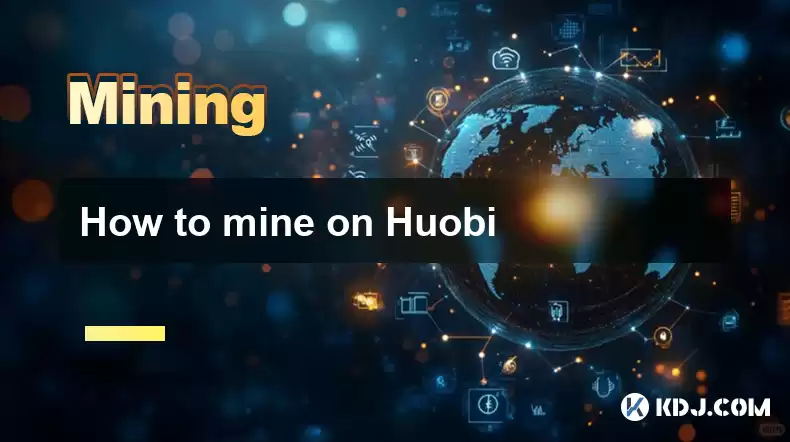
- Understand the concept of cryptocurrency mining
- Requirements for mining on Huobi
- Types of mining available on Huobi
- Setting up your mining account
- Selecting the right mining hardware
- Troubleshooting common mining issues
Cryptocurrency mining is the process of verifying and adding new transactions to a blockchain network. Miners play a crucial role in maintaining the security and integrity of decentralized cryptocurrencies like Bitcoin and Ethereum. This guide will provide a comprehensive overview of the steps involved in mining on Huobi, a leading cryptocurrency exchange.
Prerequisites:- Basic understanding of cryptocurrency and blockchain technology
- Huobi account
- Mining hardware (ASIC or GPU)
- Huobi pool account
- Solo Mining: Mining blocks individually, with rewards solely based on the miner's computing power.
- Pool Mining: Joining a mining pool to share computational resources with other miners, increasing the chances of finding blocks and earning rewards.
- Register a Huobi account and complete KYC verification.
- Create a Huobi pool account and bind it with your Huobi exchange account.
- Choose the desired mining currency (e.g., Bitcoin, Ethereum).
- ASIC Miners: Specialized hardware designed for cryptocurrency mining, offering high hash rates.
- GPU Miners: Consumer-grade graphics cards repurposed for mining, providing lower hash rates but also suitable for gaming.
Consider factors such as power consumption, efficiency, and profitability before investing in hardware.
Mining on Huobi Pool:- Configure your mining hardware according to the specific mining algorithm of the chosen cryptocurrency.
- Join the designated mining pool for your currency (e.g., BTC, ETH).
- Configure your mining software (e.g., CGMiner, MinerGate) to point to the Huobi pool's server address.
- Start mining and monitor your progress through the pool's dashboard.
- Hardware Issues: Ensure your mining hardware is properly connected and configured. Consider checking for loose cables or faulty components.
- Software Issues: Verify that your mining software is updated and compatible with your hardware. Reset your software if necessary.
- Pool Connectivity: Make sure you are connected to the correct Huobi pool server address and check your network connection.
- Low Hash Rate: Optimize your hardware settings, ensure proper cooling, and consider joining a larger mining pool.
- Q: Can I mine any cryptocurrency on Huobi?
- A: Yes, you can mine a wide range of cryptocurrencies on Huobi, including Bitcoin, Ethereum, Ethereum Classic, Litecoin, and more.
- Q: What are the fees associated with mining on Huobi?
- A: Huobi charges a pool fee of up to 5%. Additional fees may vary depending on the chosen mining hardware.
- Q: Is it profitable to mine on Huobi?
- A: The profitability of mining on Huobi depends on various factors such as hardware costs, electricity rates, and the market value of the mined cryptocurrency. Regular research and analysis are necessary to determine profitability.
- Q: Can I earn staking rewards by mining on Huobi?
- A: Staking and mining are distinct activities. Staking involves holding cryptocurrencies in a wallet to validate transactions and earn rewards, while mining involves dedicating computational power to process transactions. Huobi offers both staking and mining services.
Disclaimer:info@kdj.com
The information provided is not trading advice. kdj.com does not assume any responsibility for any investments made based on the information provided in this article. Cryptocurrencies are highly volatile and it is highly recommended that you invest with caution after thorough research!
If you believe that the content used on this website infringes your copyright, please contact us immediately (info@kdj.com) and we will delete it promptly.
- Shiba Inu Developer Defends Leadership Amidst Price Criticism, Eyes Future Developments
- 2026-02-01 03:50:02
- Dogecoin's Volatile Dance: Navigating Hidden Opportunities Amidst Nuclear Risk
- 2026-02-01 04:25:01
- MEXC's Gold Launchpad Ignites Zero-Fee Investments in Tokenized Gold Amidst Gold's Record Rally
- 2026-02-01 04:40:02
- DOGEBALL Unleashes L2 Gaming Revolution with Explosive Crypto Presale
- 2026-02-01 04:35:01
- GPT-5's Foresight, Solana's Frontier, and Ethereum's Enduring Gauntlet: Navigating the New Crypto Epoch
- 2026-02-01 04:35:01
- Crypto Coaster: Bitcoin Navigates Intense Liquidation Hunt as Markets Reel
- 2026-02-01 00:40:02
Related knowledge
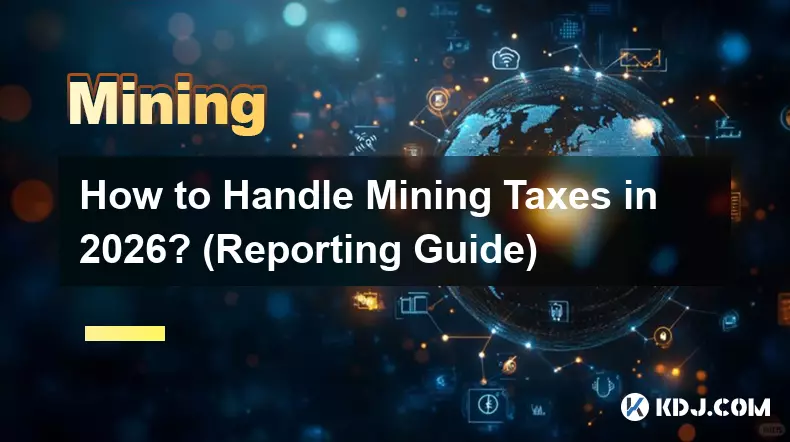
How to Handle Mining Taxes in 2026? (Reporting Guide)
Feb 01,2026 at 01:39am
Tax Classification of Mining Rewards1. Cryptocurrency mining rewards are treated as ordinary income at the fair market value on the date of receipt. 2...
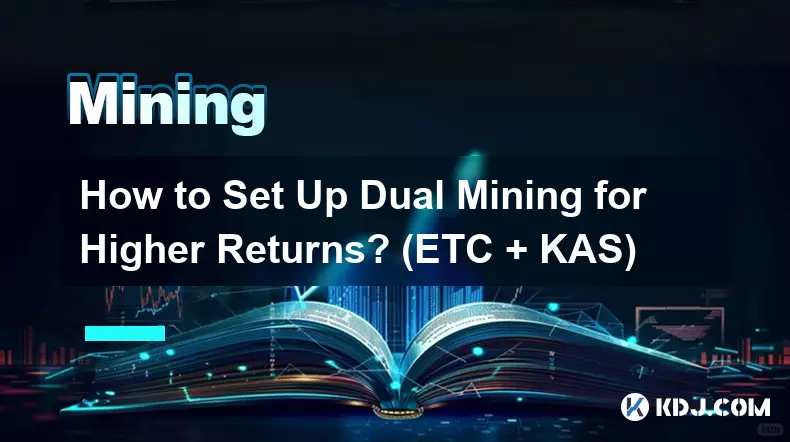
How to Set Up Dual Mining for Higher Returns? (ETC + KAS)
Feb 01,2026 at 02:19am
Dual Mining Fundamentals1. Dual mining allows a single GPU to simultaneously contribute computational power to two different blockchains using compati...
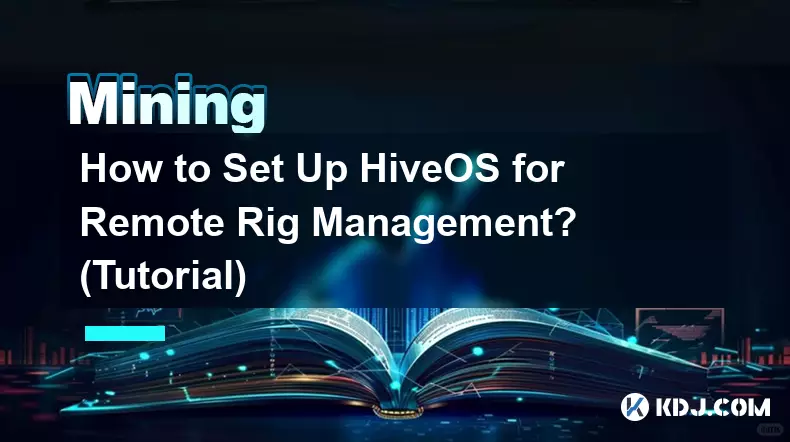
How to Set Up HiveOS for Remote Rig Management? (Tutorial)
Feb 01,2026 at 12:39am
Understanding HiveOS Fundamentals1. HiveOS is a Linux-based operating system specifically engineered for GPU mining rigs, offering lightweight perform...
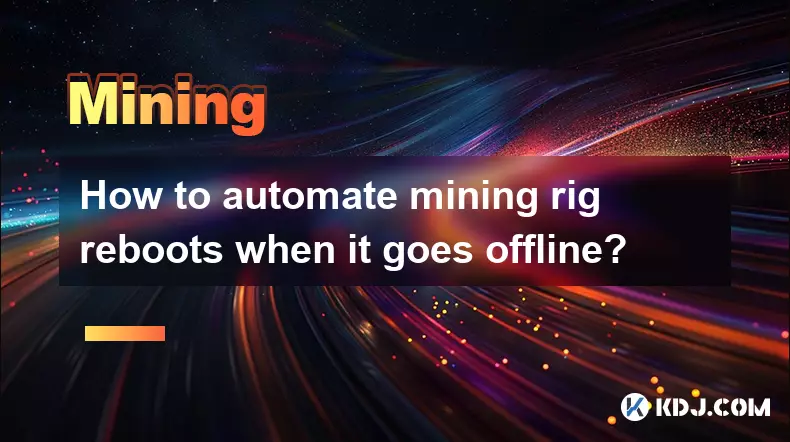
How to automate mining rig reboots when it goes offline?
Jan 23,2026 at 11:00pm
Monitoring System Integration1. Deploy a lightweight agent on the mining rig’s host OS that continuously reports hash rate, GPU temperature, and pool ...
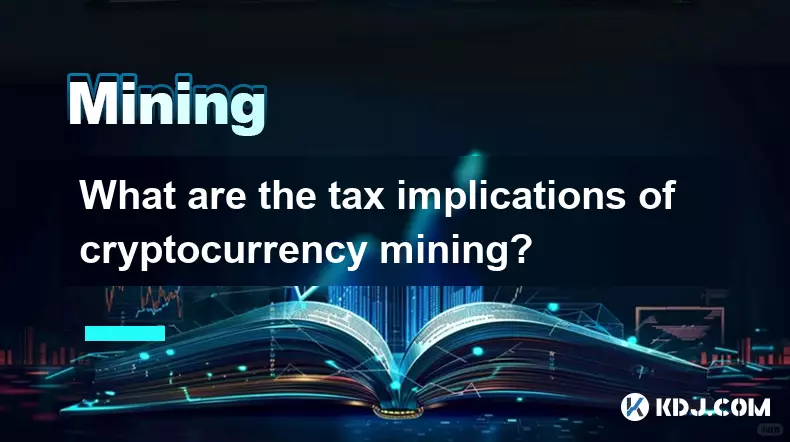
What are the tax implications of cryptocurrency mining?
Jan 23,2026 at 02:40am
Tax Treatment of Mining Rewards1. Cryptocurrency received as a reward for mining is treated as ordinary income by the IRS at the fair market value on ...
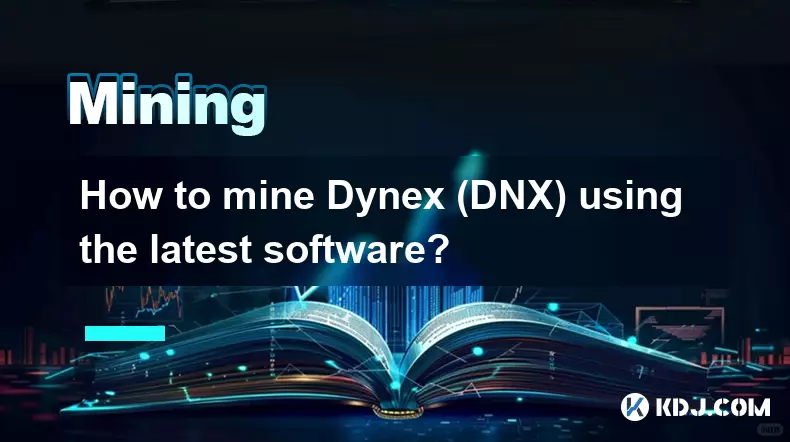
How to mine Dynex (DNX) using the latest software?
Jan 22,2026 at 10:00am
Understanding Dynex Mining Fundamentals1. Dynex (DNX) operates on a proof-of-work consensus mechanism optimized for neuromorphic computing workloads, ...

How to Handle Mining Taxes in 2026? (Reporting Guide)
Feb 01,2026 at 01:39am
Tax Classification of Mining Rewards1. Cryptocurrency mining rewards are treated as ordinary income at the fair market value on the date of receipt. 2...

How to Set Up Dual Mining for Higher Returns? (ETC + KAS)
Feb 01,2026 at 02:19am
Dual Mining Fundamentals1. Dual mining allows a single GPU to simultaneously contribute computational power to two different blockchains using compati...

How to Set Up HiveOS for Remote Rig Management? (Tutorial)
Feb 01,2026 at 12:39am
Understanding HiveOS Fundamentals1. HiveOS is a Linux-based operating system specifically engineered for GPU mining rigs, offering lightweight perform...

How to automate mining rig reboots when it goes offline?
Jan 23,2026 at 11:00pm
Monitoring System Integration1. Deploy a lightweight agent on the mining rig’s host OS that continuously reports hash rate, GPU temperature, and pool ...

What are the tax implications of cryptocurrency mining?
Jan 23,2026 at 02:40am
Tax Treatment of Mining Rewards1. Cryptocurrency received as a reward for mining is treated as ordinary income by the IRS at the fair market value on ...

How to mine Dynex (DNX) using the latest software?
Jan 22,2026 at 10:00am
Understanding Dynex Mining Fundamentals1. Dynex (DNX) operates on a proof-of-work consensus mechanism optimized for neuromorphic computing workloads, ...
See all articles





















![THIS IS THE HARDEST COIN TO GET [POLY DASH] THIS IS THE HARDEST COIN TO GET [POLY DASH]](/uploads/2026/01/31/cryptocurrencies-news/videos/origin_697e0319ee56d_image_500_375.webp)




















































